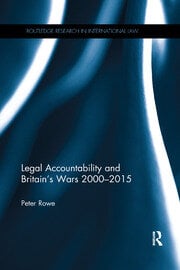Conserving Europe's Wildlife Law and Policy of the Natura 2000 Network of Protected Areas
The Natura 2000 network of protected areas is the centrepiece of European Union nature policy currently covering almost one-fifth of the EU’s entire land territory plus large marine areas. This vast EU-wide network which aims to conserve Europe’s most valuable and threatened species and habitats has major impacts on land use throughout all Member States of the EU. This book critically assesses the origins and implementation of the Natura 2000 network established under the Birds Directive of 1979 and the Habitats Directive of 1992. Based on original archival research and interviews with key participants the book records a detailed history of the origins and negotiation of Natura 2000 policy and law with the history of EU environmental policy provided as a framework. An historical institutionalist approach is adopted which emphasises the importance of understanding legal and policy development as processes that unfold over time. Three phases in the history of EU environmental policy are identified and described and the history of EU nature policy is placed within the context of these three phases. Informed by this history the author presents a comprehensive summary and assessment of the law and policy that protects Natura 2000 sites at EU level and reviews the nature conservation outcomes for the targeted species and habitats. The book reveals how a knowledge of the history of Natura 2000 enriches our understanding of key issues such as conflicts in establishing and conserving the Natura 2000 network EU integration in the field of nature conservation and the future of EU nature policy. | Conserving Europe's Wildlife Law and Policy of the Natura 2000 Network of Protected Areas

























